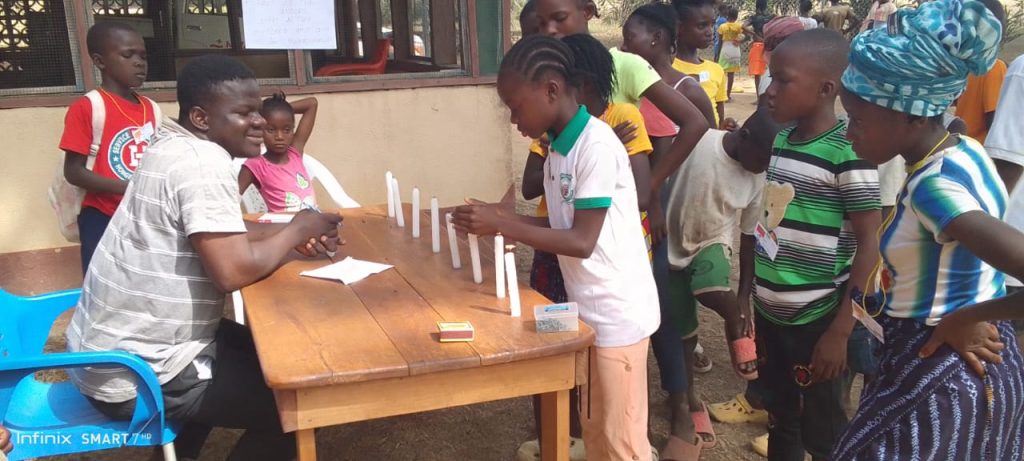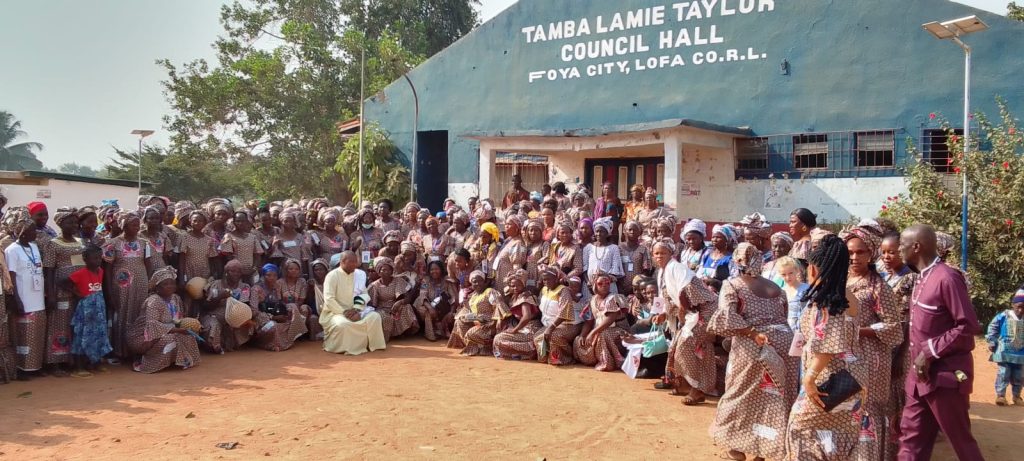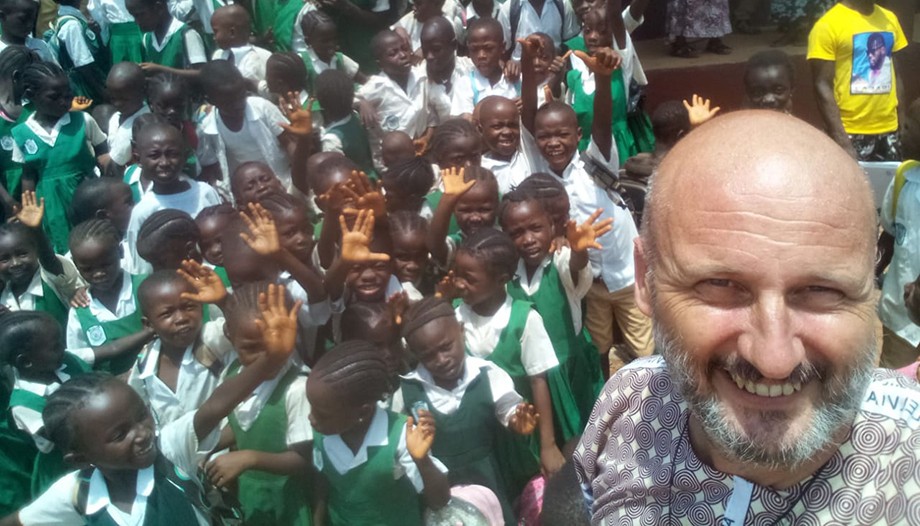In Liberia there is a parish priest who tells you about a Church you would not expect. Father Lorenzo Snider arrived in this West African country, wedged between giants like Ivory Coast and Sierra Leone, a little more than four years ago.
This missionary, of Italian origin and belonging to the Society of African Missions, lives in the small town of Foya together with his community, formed by another Italian priest, a Portuguese laywoman and a family of French volunteers.
The population they serve belongs to the Kissi ethnic group, a million people present not only in Liberia but also in some of its neighboring countries. In the entire Foya district, only 3% of the population is Catholic, while the vast majority are Protestant Christians, especially Pentecostals. A situation, similar in proportions, to that found throughout the country.

Missionary parishes centered on the Eucharist
For Father Snider, being a Catholic minority in a country where there are also Muslims with a 15% and animists with a 19% is a real challenge. My parish - the priest explains to Omnes - is a community of missionary disciples. By virtue of baptism, each one of us must encourage and accompany our brothers and sisters, allowing our souls to be touched by the poor and trying, together, to overcome fears and selfishness".
The primary means of achieving this is the centrality that Father Snider's community gives to the Sunday Eucharist. "But not only that. We also give importance to the initiatives that arise from below and we are also very attentive to relationships," explains the religious.
Relationships, the engine of evangelization
In the small community of Foya, as in the rest of Liberia, human and personal relationships are the driving force of the whole society. And, the missionary adds, for the Catholic Church they represent the heart of evangelization: "The incarnation of the Word," he says, "takes place in the field of sharing life. When we share our existence with others, we discover the beauty of the Gospel lived. But also our own fragility and that of others".
Father Snider cites some examples of members of his own community who have always been committed to weaving relationships. "I was moved," he recounts, "when the Catholic women's organization in Foya took the initiative and went to visit women in Guinea and Sierra Leone, generating a fabric of friendship and international faith exchange.
Added to this is the story of the boys of the Catholic Children's Organization, who in just a few years have become animators of their peers. "These boys often travel miles of dirt roads to visit and encourage other youth groups in smaller villages," says the parish priest with joy and gratitude.

Healing wounds
Father Snider's parish also deals with the unhealed wounds caused by the two civil wars that broke out, one in 1989 and the other in 1999, which caused almost half of the population to flee and destroyed basic infrastructure. And it tries to soothe the still very strong pain from the consequences of the Ebola epidemic that claimed thousands of victims between 2014 and 2016.
In addition to solidarity and charitable initiatives aimed at the local population, the missionary organizes the formation of liturgical animators and the accompaniment of catechumens. "A very high attention is dedicated - he specifies - to the world of education. Here in Foya and in the neighboring communities of Kolahun and Vahun, our team of catechists follows about a thousand students attending Catholic schools. Among them are also children who are helped with scholarships".
"Street Ecumenism".
What is not lacking in Foya is also interreligious dialogue. Father Snider is at pains to point out that, despite being a minority, Catholics find ways to organize informal moments of encounter and fellowship with leaders of other Christian churches and other religions.
"To give an example," recalls the pastor, "a few days ago we celebrated a wedding between two Catholics: a dozen Protestant pastors linked to one or the other family were also present at the Mass. The wedding procession that later drove through the city consisted of four cars. Who were the drivers? I and three other Protestant pastors. I called it street ecumenism".








